The cases of low pensions are mainly those who retire from the Nghe An Farmers' Social Insurance Fund and transfer to voluntary social insurance according to Decision 41/2009/QD-TTg dated March 16, 2009 of the Prime Minister; non-professional commune officials; voluntary social insurance participants who choose the lowest social insurance contribution level...
The lowest pension level is concentrated in the group of farmers in Nghe An who participated in the pilot program of paying social insurance for farmers. By 2009, when the social insurance for farmers in Nghe An was converted to voluntary social insurance according to Decision 41/2009/QD-TTg, many cases continued to participate in the "safety net" through the form of voluntary social insurance. When retiring, due to the short payment period and low monthly social insurance payment (sometimes only 10,000 VND/month), these cases have low pension levels.
In addition, non-professional communal cadres are also in the group of subjects with low pensions. This group has a social insurance contribution level equal to the basic salary, and a short period of social insurance contribution to receive pensions (from 15 to 20 years).
At the same time, according to regulations, upon retirement, if one does not have 20 years or more of compulsory social insurance contributions (not including the period of social insurance contributions for non-professional workers in communes, wards and towns), and the pension is lower than the basic salary, the pension will not be fully compensated by the basic salary.
In 2021, the average pension of non-professional commune officials is about 1.3 million VND/month.
For voluntary social insurance participants, the monthly income used as the basis for social insurance contributions (chosen by the participant) is at least equal to the poverty line for rural areas and at most 20 times the basic salary at the time of contribution.
In reality, most people choose an income level corresponding to the regional poverty line (before 2022, the rural poverty line is 700,000 VND, from 2022 it is 1.5 million VND) to pay voluntary social insurance. In reality, the vast majority of voluntary social insurance participants only pay social insurance until they have completed 20 years to meet the minimum time requirement to receive a pension.
Due to the low social insurance contribution rate and short social insurance contribution period, the average benefit level of this group is low. In addition, many employees who pay compulsory social insurance due to lack of social insurance contribution period to receive pension have chosen to pay voluntary social insurance monthly or one-time for the remaining period at a low level, so their pension benefit level will also be low.
Many businesses "circumvent the law" to pay social insurance for employees.
For those who participate in compulsory social insurance, many businesses "circumvent the law" by paying social insurance for employees that is not in accordance with the actual salary and income of the employees. In some units, the income used as the basis for paying social insurance for employees is always at the lowest level, leading to the average benefit of employees being low when they retire.
For example, in the case of employees who pay low social insurance premiums, they receive low pensions, such as Ms. Nguyen Thi N. (born in 1962) who has participated in social insurance for 20 years and 3 months, with a pension rate of 61%. However, Ms. N. spent 2/3 of her time participating in social insurance with a low salary (for many years, Ms. N.'s social insurance premium was only 300,000 - 400,000 VND/month...), so when she retired (in May 2017), Ms. N. had a salary of 1,074,586 VND. After the pension adjustment according to Decree No. 108/2021/ND-CP of the Government , by June 2023, the pension amount that Ms. N. received increased to 1,600,300 VND.
The above situation shows that although the percentage of pensioners is quite high (maximum 75%), due to low contribution levels; short period of social insurance contribution to receive pension, the situation of many employees (especially employees working outside the State sector) retiring before the age, not paying the correct salary and actual income at some employers... leads to the current average benefit level of many employees being low.
Currently, the Law on Social Insurance stipulates that the salary used as the basis for social insurance contributions of employees includes both salary and allowances. For some employee benefits (support) of the employer that are regular and stable in nature, such as: support for gasoline, phone, lunch, housing, etc., current law stipulates that they cannot be used as the basis for calculating social insurance contributions. Taking advantage of this regulation, some enterprises "circumvent the law" by dividing allowances into these support amounts to avoid paying or not paying enough social insurance. Therefore, in order to ensure the legitimate rights of employees, Vietnam Social Insurance proposes that competent authorities study the plan when amending the salary used as the basis for social insurance contributions in the direction: For employees paying social insurance according to the salary regime decided by the employer, the salary used as the basis for social insurance contributions is the monthly salary, including: salary, salary allowances, and other supplements paid regularly in each salary payment period.
In addition, it is necessary to study to harmonize the 3 types of income of employees and have a legal basis to clearly determine the income of employees as the basis for paying social insurance, avoiding the situation of too large a difference between the income of employees for tax settlement and the actual income paid to employees, creating conditions to ensure the best benefits for employees when they retire. However, this content needs the opinions of related sectors such as Finance, Labor, Justice, Vietnam General Confederation of Labor , etc.
Faced with the reality that some employers do not pay social insurance at the level of actual income of employees according to the salary received, to ensure full benefits for themselves, when signing a labor contract, employees need to pay attention to the agreement on the salary received, the salary paid for social insurance in the contract and make recommendations to the unit if their social insurance payment level is lower than the salary received or lower than the regulations on the regional minimum wage. At the same time, employees need to regularly monitor and look up their social insurance payment and enjoyment process through channels (such as the Vietnam Social Insurance Portal, VssID application - Social Insurance number...) to promptly grasp the social insurance payment information of the employer; promptly report to the competent authorities the acts of incomplete social insurance payment by the employer for the employee (if any).
Currently, the whole country has more than 3.3 million people receiving monthly pensions and social insurance benefits. To continue improving the lives of retirees, on June 29, 2023, the Government issued Decree No. 42/2023/ND-CP adjusting pensions, social insurance benefits and monthly benefits.
Accordingly, pensions, social insurance benefits and monthly allowances will be increased from 12.5% to 20.8% for beneficiaries. Those who retired and received pensions and monthly allowances before 1995, after adjustment but still received less than 3 million VND/month, will receive an increase, specifically: those receiving less than 2.7 million VND/month will receive an increase of 300,000 VND/month; those receiving from 2.7 to less than 3 million VND/month will receive an increase of 3 million VND/month.
This Decree takes effect from August 14, 2023; its provisions shall be implemented from July 1, 2023.
TM
Source




![[Photo] Opening of the 14th Conference of the 13th Party Central Committee](https://vphoto.vietnam.vn/thumb/1200x675/vietnam/resource/IMAGE/2025/11/05/1762310995216_a5-bnd-5742-5255-jpg.webp)

























![[Photo] Panorama of the Patriotic Emulation Congress of Nhan Dan Newspaper for the period 2025-2030](https://vphoto.vietnam.vn/thumb/1200x675/vietnam/resource/IMAGE/2025/11/04/1762252775462_ndo_br_dhthiduayeuncbaond-6125-jpg.webp)





















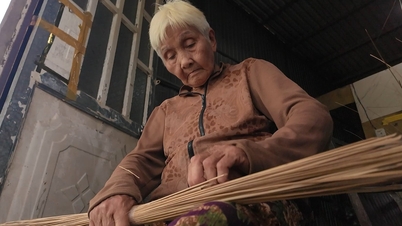

















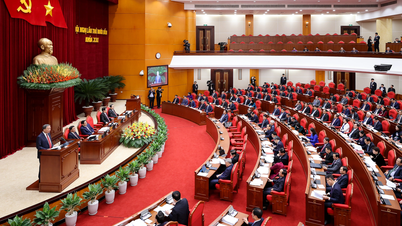
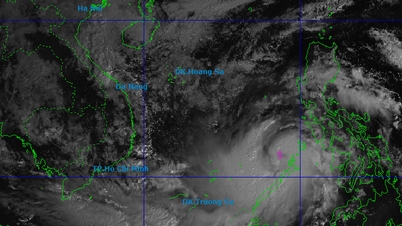



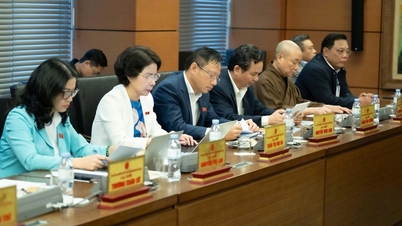


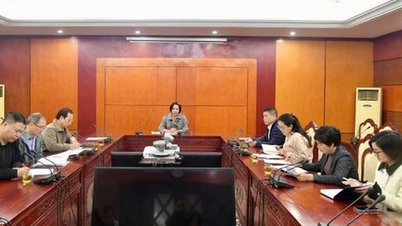





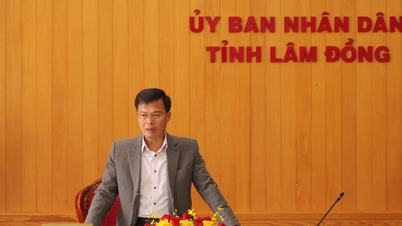

















Comment (0)